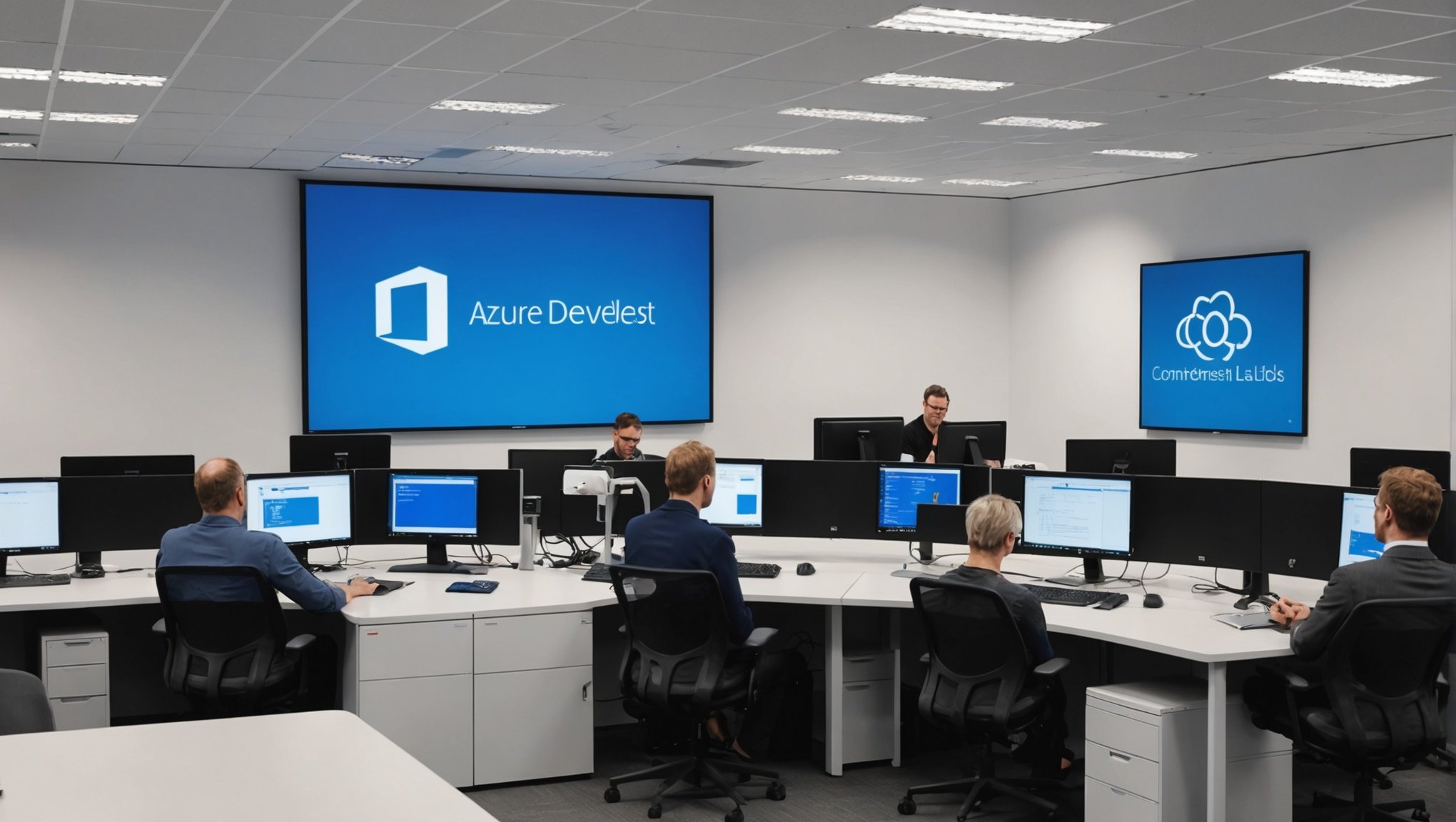In the fast-paced world of software development, the need for quick and efficient creation, testing, and deployment of applications is paramount. Azure DevTest Labs, a service provided by Microsoft Azure, offers a robust solution for developers looking to speed up their development and testing processes. But how exactly can you leverage Azure DevTest Labs to enhance rapid development and testing? Let’s delve into the details.
Azure DevTest Labs is designed to help developers and testers quickly create environments in Azure while minimizing waste and controlling costs. This service is particularly beneficial for teams that need to rapidly spin up and tear down multiple environments for development, testing, and training.
Have you seen this : How do you set up a scalable environment for WordPress using AWS ECS?
Azure DevTest Labs provides pre-configured templates, scalable virtual machines (VMs), and automation capabilities to streamline the setup of development and test environments. It removes the traditional bottlenecks associated with hardware provisioning and configuration, enabling teams to focus on coding and testing rather than infrastructure management.
Efficient Environment Provisioning
One of the standout features of Azure DevTest Labs is its ability to provision environments efficiently. This service allows you to create custom templates and reusable artifacts, which are essentially pre-configured environments tailored to your specific needs.
Topic to read : How do you set up a CI/CD pipeline using Drone for a Go project?
By utilizing these templates, you can quickly spin up consistent environments that include all necessary software, tools, and configurations. This is particularly useful in ensuring that development and testing environments mirror production settings, reducing discrepancies and potential bugs.
Moreover, Azure DevTest Labs integrates seamlessly with Azure Resource Manager (ARM) templates. ARM templates offer a way to define and provision Azure resources in a declarative manner. This integration ensures that the creation of complex environments can be automated, further accelerating the development process.
The provisioning process in Azure DevTest Labs is not only fast but also highly scalable. You can create multiple environments in parallel, enabling different teams to work simultaneously without delays. This scalability is crucial for large development projects where various components need to be tested concurrently.
Cost Management
Managing costs is a critical aspect of any development project. Azure DevTest Labs provides several features aimed at cost optimization. One of the primary methods is through the use of policies and schedules.
You can define policies that control the creation and usage of resources within the lab. For instance, you can limit the number of VMs a team can create or enforce VM size restrictions to prevent the use of costly resources. These policies ensure that resources are used efficiently and within budget constraints.
Automated shutdown schedules are another powerful feature for cost management. You can configure VMs to automatically shut down at specified times, reducing unnecessary consumption of resources. This is particularly useful for development and testing environments, which often do not need to run 24/7.
Azure DevTest Labs also provides detailed cost tracking and reporting. You can monitor resource usage and expenses in real-time, allowing for proactive cost management. This visibility ensures that you can identify and address any cost overruns promptly, keeping the project budget on track.
In addition, you can take advantage of Azure’s pricing plans and discounts. For instance, you can use Azure Reserved VM Instances to save up to 72% compared to pay-as-you-go pricing. These savings can significantly reduce the overall cost of development and testing activities.
Enhanced Collaboration
Effective collaboration is essential for successful development projects. Azure DevTest Labs offers several features that facilitate collaboration among team members.
One of the key features is the ability to share reusable templates and artifacts within the team. By creating and sharing these resources, team members can quickly access consistent environments without the need to configure them from scratch. This not only speeds up the setup process but also ensures consistency across different environments.
Azure DevTest Labs also integrates with popular DevOps tools and services such as Azure DevOps, Jenkins, and GitHub. This integration enables seamless CI/CD workflows, allowing teams to automate the build, test, and deployment processes. By integrating with these tools, you can streamline the entire development lifecycle, from code commit to production deployment.
Additionally, Azure DevTest Labs provides role-based access control (RBAC) to manage permissions and access levels within the lab. This ensures that team members have the necessary access to perform their tasks while maintaining security and compliance. You can define roles such as lab owner, lab user, and lab contributor, each with specific permissions tailored to their responsibilities.
The collaboration features in Azure DevTest Labs also extend to external stakeholders. You can invite external partners or clients to access the lab and participate in testing or training activities. This external collaboration can be crucial for projects that involve multiple organizations or require client validation.
Automation and Integration
Automation is a key driver of efficiency in development and testing processes. Azure DevTest Labs offers several automation features that help streamline workflows and reduce manual intervention.
Custom scripts and tools can be integrated into the lab environment to automate routine tasks. For example, you can use PowerShell or Azure CLI scripts to configure VMs, deploy applications, and run tests. These scripts can be executed automatically during the provisioning process, ensuring that environments are set up consistently and quickly.
Azure DevTest Labs also supports the integration of automated testing frameworks. You can configure the lab to automatically run tests whenever a new build is deployed, providing immediate feedback on code quality. This continuous testing approach helps identify and resolve issues early in the development cycle, reducing the risk of defects reaching production.
Furthermore, Azure DevTest Labs integrates with Azure Automation and Azure Logic Apps. Azure Automation allows you to create runbooks that automate complex workflows, such as scaling environments based on demand or performing maintenance tasks. Azure Logic Apps enable you to automate workflows across different services, such as triggering deployments or sending notifications based on specific events.
The integration capabilities of Azure DevTest Labs extend to monitoring and logging services as well. You can configure the lab to collect and analyze telemetry data using Azure Monitor and Application Insights. This holistic view of the environment’s performance and health helps in diagnosing issues and optimizing resource usage.
Azure DevTest Labs stands out as a powerful tool for accelerating development and testing processes. Its efficient environment provisioning, cost management features, enhanced collaboration capabilities, and automation options make it an indispensable asset for development teams.
By leveraging Azure DevTest Labs, you can rapidly create and manage consistent environments, control costs effectively, foster collaboration within your team, and automate repetitive tasks. These benefits collectively contribute to a more efficient and productive development lifecycle, enabling you to deliver high-quality applications faster.
In today’s competitive landscape, the ability to develop and test applications rapidly is a significant advantage. Azure DevTest Labs provides the tools and features needed to achieve this, positioning your team for success. Embrace Azure DevTest Labs and transform your development and testing processes, ultimately delivering exceptional software solutions to your users.











